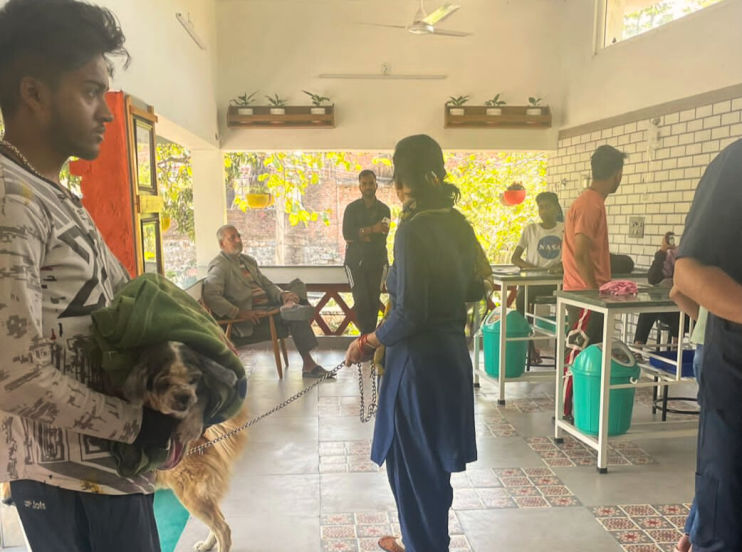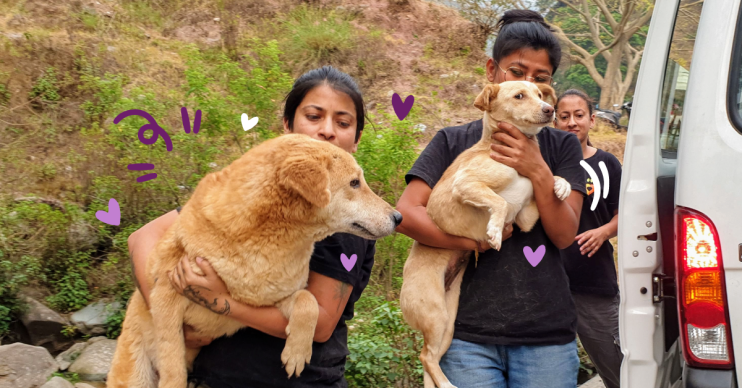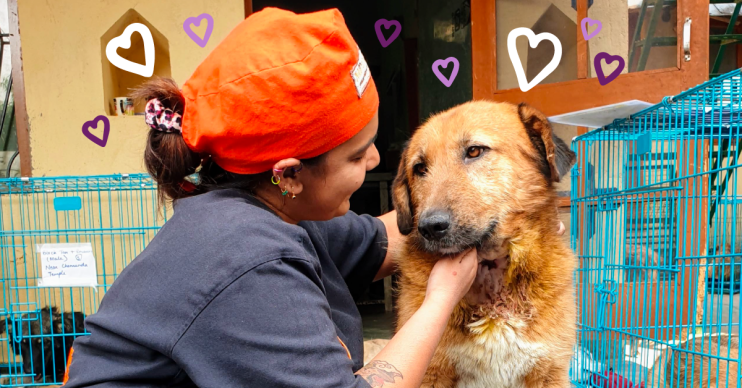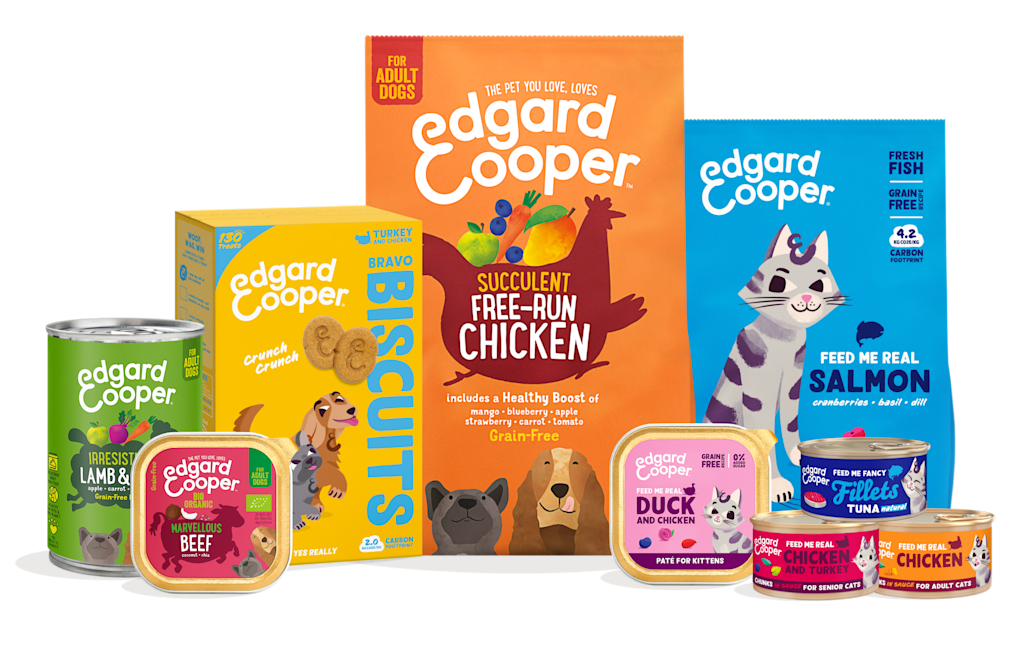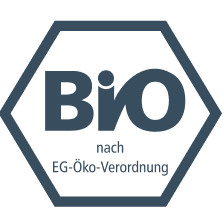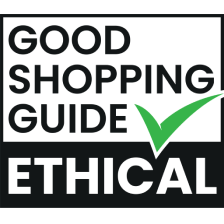How we managed to reduce our pawprint
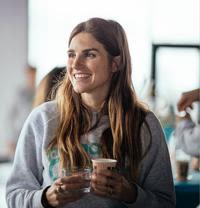
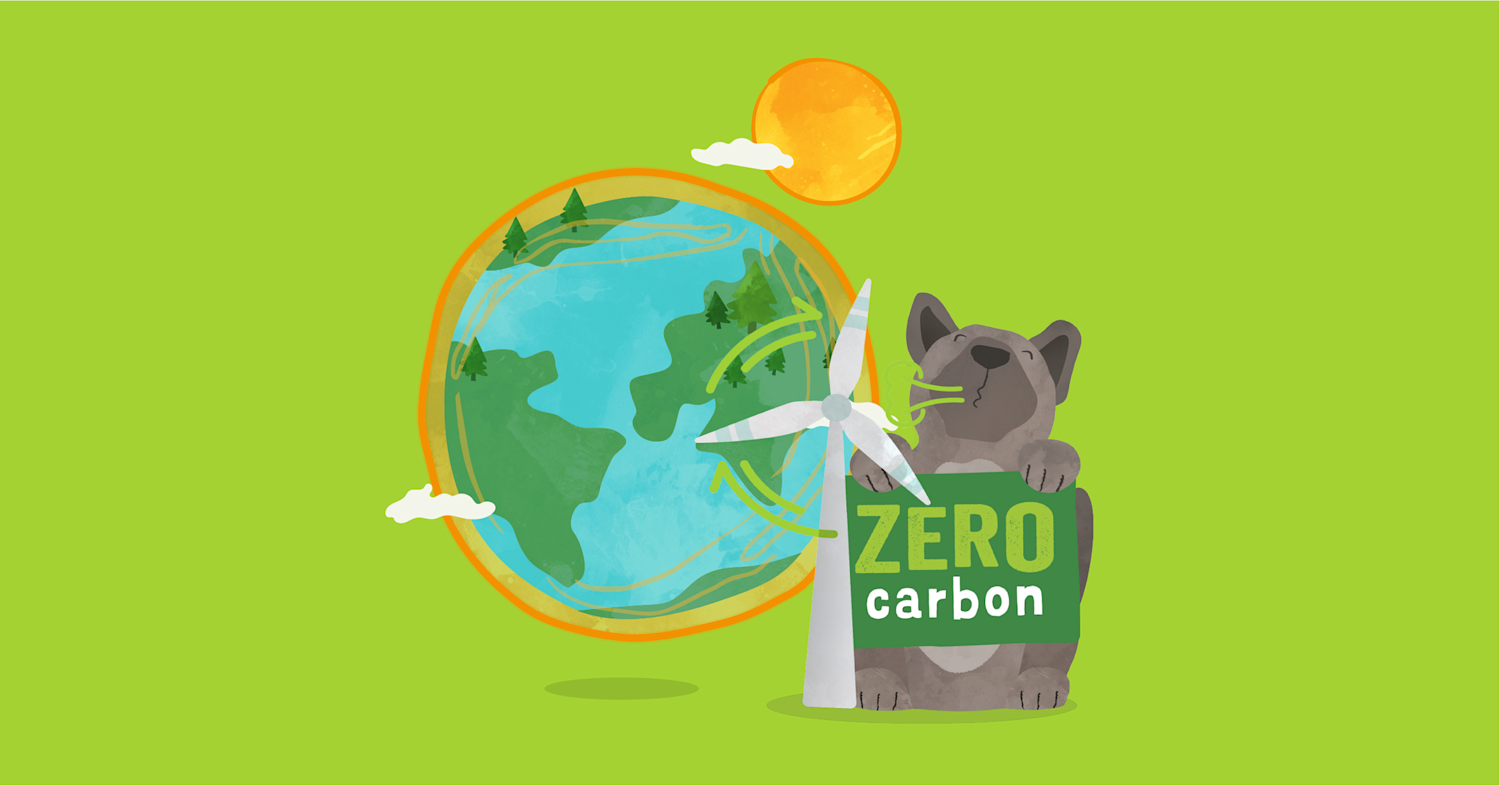
When we started Edgard & Cooper, we knew there was a connection between how we ran our business and the impact we made on our beloved natural habitat. It’s no secret that the meat industry is a big emitter of greenhouse gases and so we can’t hide from the fact that our tasty pet food has an impact on climate change. We know this is something we needed to address, which is why we set ambitious science-based carbon targets to reduce our emissions in line with the Paris Agreement. This meant getting to zero emissions in our own operations (Scope 1 and 2) and measuring and reducing all the emissions in our supply chain and beyond (scope 3 emissions). Although these commitments were the first step, we owed you and Mother Nature to take real action as well, and that is exactly what we did.
The average kg CO2e per kg product sold dropped in 2022
When only looking at ingredients, we saw more or less a status quo in the years 2020 till 2021. As we wanted to significantly reduce our scope 3 emissions, we needed to step up our game. Behind the scenes we were modifying recipes, looking into product formulations and new suppliers. And with success. In 2022 we noticed a first small decrease, followed by a bigger – more noticeable decrease in 2023.
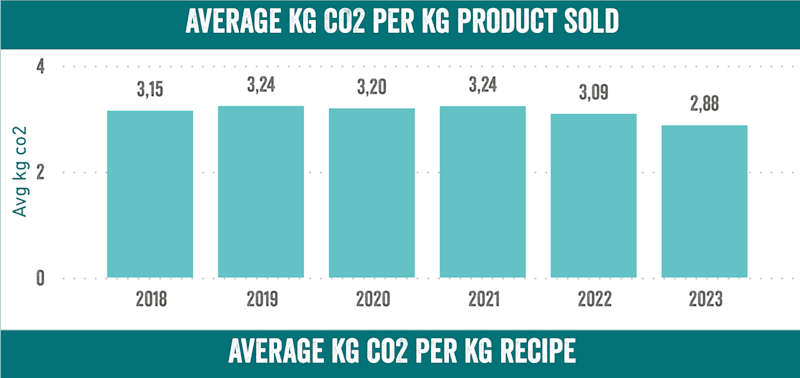
What triggered the decrease?
Remember our new cat range? Well, that was entirely developed with pets and planet in mind. By finetuning the recipes and rethinking the product formulations, we managed to develop better tasting – healthier and planet-friendlier options. The carbon footprint of our wet food even dropped by a massive 58% versus the previous cat range. Cat dry food didn’t do too bad either. Compared to the old kibbles, the footprint dropped by an astonishing 23%.
These cuts really came down to rethinking product formulations. For example our traditional cup lamb/beef changed into a lamb/chicken recipe; decreasing the ingredient footprint from 9.35kg CO22 to only 3.51kg CO2e. Our chicken kibbles dropped from 3.94kg CO2e to 1.55kg CO2e, by reconsidering the contribution of protein sources. All changes were made without comprising on taste. Our panel of test cats chose the new flavours over the old ones, every single time. Secondly, we made the bold decision to stop selling recipes like our cup beef/duck and replaced these by a large variety of chunks, pate and even fillets. The assortment to choose from is bigger than ever, but the footprint isn’t. Feeding your cat great food for the planet has never been an easier choice ;-)
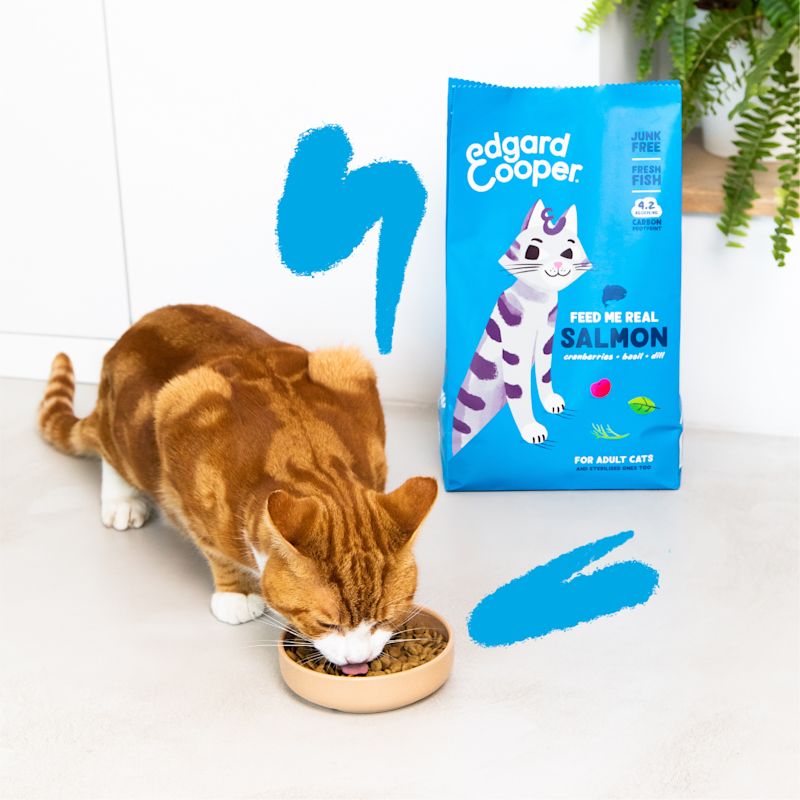
But that was not all…
We slightly changed the recipes of our dog tins and were able to lower the average CO2e per kg sold for the tins by 4%. Lamb and beef are still present in our product portfolio and if we would change these by planet-friendlier alternatives – we would save another 9%!
What does the future hold?
The next months and coming years, we’ll further focus on finetuning our recipes as we truly see the massive impact small changes can have. It might be time to make even bolder decisions and cut out beef and lamb completely, or/and further look into alternative proteins. We need to feed our cats and dogs, but we can choose what to feed them.
About Edgard & Cooper

Joyful pet food
Eating is one of life’s simple joys, so why overcomplicate things? Unlike most other pet foods, we treat nature’s ingredients with respect and make food that’s naturally healthy and full of flavour.
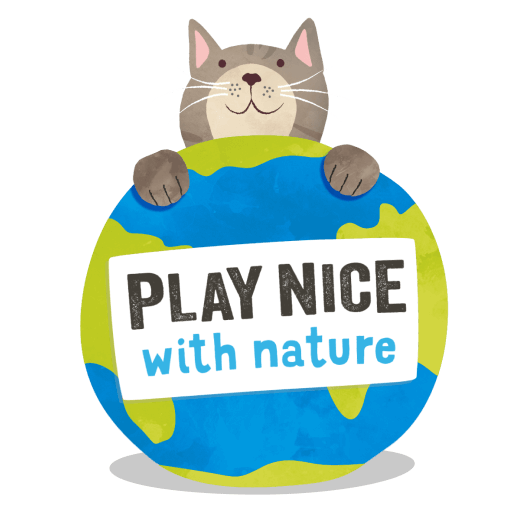
Play nice with nature
We’re on a mission to become the world’s most sustainable pet food. We love nature, so we pledge to make real, lasting change through our targets of zero carbon, fully sustainable packaging and ethically sourced ingredients.

Friends stick together
We donate 1% of our sales to the Edgard & Cooper Foundation, which works with charities that improve the lives of cats and dogs today, while protecting them tomorrow.
